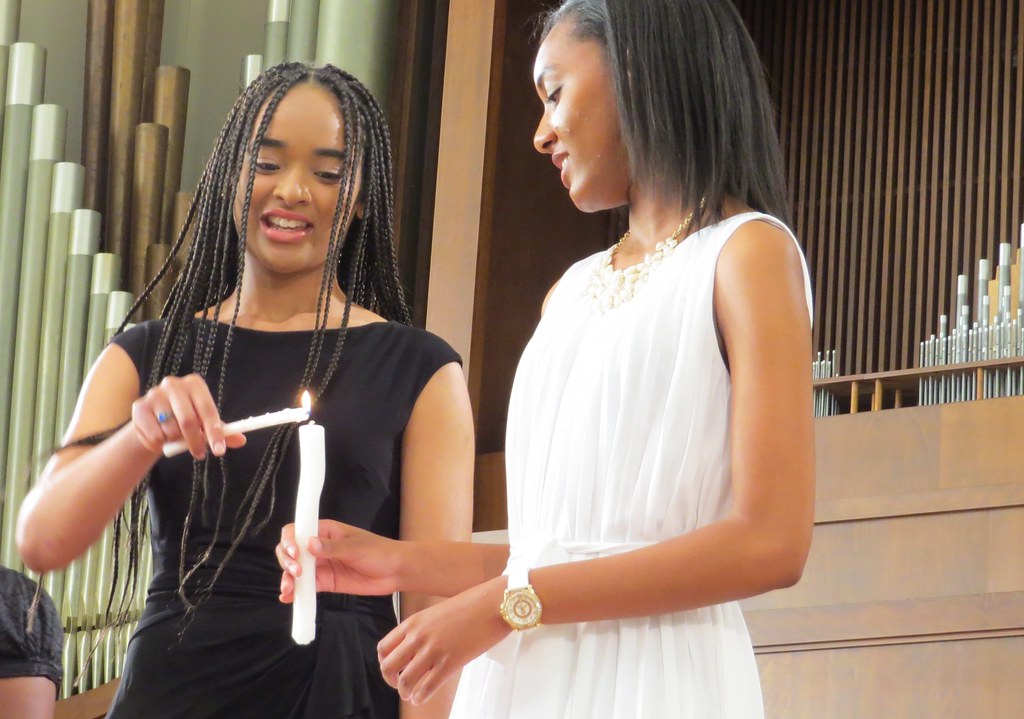Letter from Opal Moore: The Golden Plow

Many people ask: What is Honors?
Some of the askers fear that this language is about “elitism”, or privilege—that it tilts to favor an economic or social profile, or that it fosters separation rather than shared humanist values and sisterhood. I say, don’t be afraid.
Honors is a nationally affiliated Program concept. Honors Programs did not originate on Black campuses. However, their underlying rationale is not alien to the mission of the historically Black college. One might say that the adoption of Honors to Black campuses illuminated the core ethics of Honors—to affirm and make visible the core pursuit of higher education, which is to recognize the value of all who are highly motivated in the pursuit of knowledge. In short, to offer support and community to those for whom the love of learning is bread. At the Black college, knowledge is not an ivory tower destination. If Frederick Douglass is correct that crops cannot be gained without plowing up the ground, then knowledge is the golden plow.
The important question is, what is Honors at Spelman College? What is “intellectual community”?
I have taken to asking high school students whether they have ever been abused rather than affirmed when they proved themselves to be among the top students in a class. Always, several hands go up, with urgency. And they have stories. I then ask: Should there be a place where Black women’s intelligence is normal; where she doesn’t have to hide her intelligence, her curiosity, her love of learning? A few hands will shoot up. Others lift their hands, hesitantly, with sidelong glances. Some do not lift their hands but their eyebrows. Considering, perhaps, the consequences of their vote—the trick in the question.
But, shouldn’t there be such a place, where a Black woman’s intelligence does not make her suspect or odd or outcast, but valued, respected, consulted? Normal?
I say yes. And I say if, for no other reason, the Honors Program at Spelman College must serve to articulate this promise to the women who journey here.
It is here that we must be able to say, like poet Mari Evans, “I am a Black woman.” And further, “I am a Black woman who thinks, questions invent, wonders dances my dance sings my song, and is determined to remember the many ways that women have applied their minds to the work of social, political, and cultural change. Deal with it!”
The Honors Community announces our embrace of student intellectual leadership—a breathless excitement for students as they discover the power and excitement of shaking loose the ideas hidden in their living, breathing, pulsing environments. Women who are less concerned with the answers at the back of the book—whose pulses quicken with the question. What is the equation of Freedom? asked Marita Bonner in 1925. What is the secret of Joy, asks Alice Walker?
More often, joy is in claiming the freedom to pursue the question, whether one is a scientist, artist, dancer, poet, storyteller, mathematician, mother….
The Honors Community at Spelman is among us. It should be part of the mild intoxications of daily life. It is in the shine of women who believe that learning is like breathing—necessary to their lives. It is, too, for the woman who does not consider herself “intellectual,” that ominous word with its frightening gravity. but highly purposed. It is for the woman who needs to know that the “life of the mind” is not a sterile journey into self-negation—that her history and her life provide her with the tools for self-actualization. It is a place for shared stories—not the old stories that “have been used to dispossess and malign” says Chimamanda Adichie, but stories that help to repair and restore us to ourselves and to tackle what seems impossible.
Every person who believes in freedom must be an intellectual, in public and in private. In all of the places where we must dig for what is true, enduring, and useful.
Today’s institutions of higher education serve many masters. Honors Programs can assist, by their very presence, in reminding the world to preserve higher education’s raison d’etre. Which is surely not to define persons by their job titles. But rather to liberate the person to define her task.
What is the Honors community? It is the space created through the words of Audre Lorde:
When I dare to be powerful, to use my strength in the service of my vision, then it becomes less and less important whether I am afraid.

